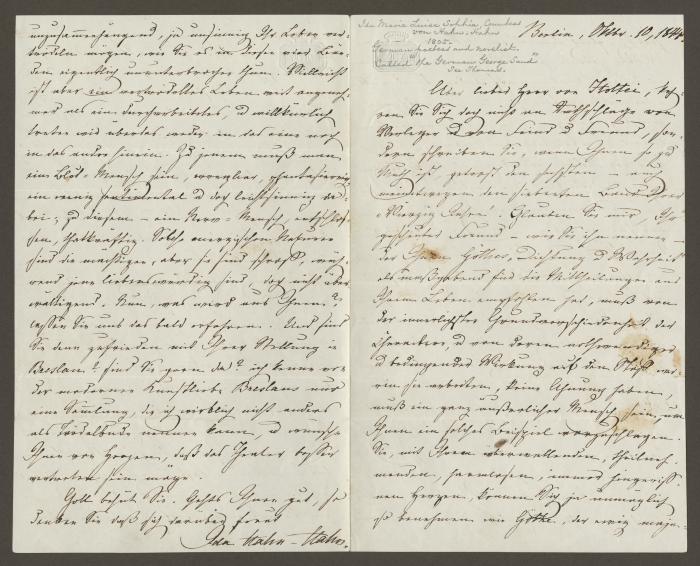Ida Gräfin von Hahn-Hahn, 1805-1180
Entity Type:
IndividualIdentifier:
ENT.000004101Biography:
Ida, countess von Hahn-Hahn, (born June 22, 1805, Tressow, Mecklenburg-Schwerin [now in Germany]—died Jan. 12, 1880, Mainz, Ger.), German author of poetry, travel books, and novels that, though written in an artificial, aristocratic style, often show acute psychological insight.Daughter of the theatrical producer Count Karl Friedrich von Hahn, she acquired her hyphenated dual name by marrying a cousin, Count Adolf von Hahn, in 1826. Three years later this unhappy marriage ended in divorce, and in subsequent years the countess became involved in several other unsuccessful relationships with men. She incorporated many of her own experiences into the sentimental plots of her novels. These novels, collected in Aus der Gesellschaft, 8 vol. (1835–46; “From Society”), deal with noblemen of strong, passionate natures who are involved in tragic conflicts with their circumstances. The best of her novels, Gräfin Faustine (1841; “Countess Faustine”), deals with the “freedom of feeling” associated with the Young Germany movement that strongly influenced her. Her style was parodied by a rival, Fanny Lewald, in Diogena (1847). In 1850 Countess von Hahn-Hahn converted to Roman Catholicism and began publishing pious stories and poems. Her Von Babylon nach Jerusalem (1851; “From Babylon to Jerusalem”) was a justification of her conversion.
